Victorian Labor’s environmental policy amnesia - political opportunism trumps principle
 The Andrews Labor government has just failed a crucial test of its integrity in relation to threatened species listings and biodiversity governance. Immediately prior to losing office in December 2010, the Brumby Labor government had finalized listing the dingo as a threatened native taxon under the Flora and Fauna Guarantee Act.
The Andrews Labor government has just failed a crucial test of its integrity in relation to threatened species listings and biodiversity governance. Immediately prior to losing office in December 2010, the Brumby Labor government had finalized listing the dingo as a threatened native taxon under the Flora and Fauna Guarantee Act.
The current Labor government’s virtual trashing of that listing, through the reinstatement of a ‘wild-dog’ bounty, which directly panders to the Victorian Upper House Shooters, Fishers and Farmers party members, who were voted in on a relative handful of first preference votes, now casts a shadow over the Victorian Government’s commitment to biodiversity conservation.
The broader significance of the dingo listing relates to the dingo’s pivotal ecological role as apex predator. Ecologists around the world are increasingly pointing to the importance of top predators for ecosystem stability at a time of environmental dislocation and accelerating species loss.
The bounty is nothing more than a publicly subsidized membership recruitment drive for recreational hunting organizations because membership of such organizations is a precondition for permission to kill 'wild-dogs'/dingoes and receipt of the bounty payment.
While Jaala Pulford, the Agriculture Minister, against strong advice from peak environmental organizations and environmental experts, has obstinately persisted in reintroducing the bounty, the Environment Minister, Lily D'Ambrosio has remained invisible. No environmental defence of the bounty has been forthcoming, nor could there be.
This reflects a disturbing, environmentally destructive imbalance of ministerial responsibilities established under the previous Coalition government, whereby the Minister for Agriculture has shared responsibilities for key sections of the Wildlife and Flora and Fauna Guarantee Acts.
Labor is now demonstrating its willingness to continue the environmental dirty work of the Coalition government with little acknowledgement of the environmentally progressive legacy of the Brumby government's dingo listing and the arrangements then put in place to ensure a balanced approach to dingo protection and farm stock protection.
By reinstating the bounty, Victorian Labor has displayed serious environmental incompetence and party leaders seem unable or unwilling to do anything about it. Victorians deserve better.
Attached are two media releases, one by the Humane Society International (HIS) and the other by the National Dingo Preservation and Recovery Program Inc. (NDPRP). The HSI emphasises that there is no sound pest animal control justification for the bounty and that it will be environmentally harmful. The bounty of $120 per scalp will make no significant contribution to protecting farm stock from wild-dog predation.
The NDPRP Inc. highlights how the Andrews Labor Government has been captured by extreme elements of the farming lobby and recreational shooters organizations in the misguided belief that the ALP can win over a greater share of the rural vote to compensate for the likely electoral gains of the Greens at the next Victorian election.
Victorians need to ask where such extreme anti-environmentalism by Victorian Labor is heading. There is now a concerted push by the gun lobby for increased access to public lands and the advocacy of ‘community involvement’ in ‘pest animal’ management is providing the rhetorical basis for greater access. Victorians can expect that their national parks will become a focus of this push. At the moment, it is illegal to carry a firearm into national parks. However, given its present reactionary policy trajectory, Labor will likely continue to dump environmental principle in favour of political expediency.
Val Morgan
........................................................
Victorian Labor destroys legacy with backflip on dingo bounty
26th October 2016
Humane Society International (HSI) is incensed by the announcement that the Victorian Labor Government has destroyed its dingo conservation legacy with “a bigger, better bounty” than the Coalition program they scrapped just a year ago. A far cry from the previous Labor Government’s landmark listing of the dingo as a threatened species in 2008, the move signals a new era where Labor is beholden to the Shooters, Fishers and Farmers Party with the state’s wildlife considered nothing more than collateral.
An abundance of reasons this regressive and misguided bounty program is bound to fail at the expense of Victoria’s environmental health were outlined by HSI and echoed by experts last week. They include: leaving the Government exposed to fraud; an inability to determine genetic purity in the field; and ‘wild dog’-dingo hybrids playing the same ecological role as genetically pure dingoes, including suppressing feral cat and fox populations to the benefit of countless native species.
"The Victorian Government is using taxpayer money to incentivise the killing of a threatened species with the ecological fallout to impact dozens more, it’s inexcusable and the public should be outraged. An opportunity to reform management to the mutual benefit of farmers and the environment has been ignored for purely political purposes, and we’re left with short-sighted investment in outdated methods that have repeatedly been tried and failed," said HSI Senior Program Manager Evan Quartermain.
Minister for Agriculture Jaala Pulford’s justification that a bounty of $120 per ‘wild dog’ scalp will be introduced “In recognition of the role hunting can play in supporting the management of wild dogs” is in stark conflict with expert organisations such as the Invasive Species Council, who have determined that shooting is a highly ineffective control measure for canid species. Similarly, Minister Pulford’s claim that “One less dog roaming on people's farms is a good outcome” demonstrates an alarming lack of ecological understanding. The latest research suggests that such control programs in fact increase stock predation due to pack disturbance altering behaviours.
“Alternative stock protection methods such as guardian animals have proven to be effective and are ripe for Government investment. Yet against all evidence the Labor Government has turned their back on the iconic and threatened dingo, bowing to shooters groups and trashing their conservation legacy by mimicking Coalition policy. They should instead be focused on strengthening the dingo’s threatened listing, with the voice of Minister for the Environment Lily D’Ambrosio conspicuous in its absence,” Mr Quartermain concluded.
HSI is currently seeking legal advice on the legality of the Victorian ‘wild dog’ bounty announced today.
Media Contact:
Evan Quartermain, Senior Program Manager: 0404 306 993 or (02) 9973 1728
HSI concentrates on the preservation of endangered animals and ecosystems and works to ensure quality of life for all animals, both domestic and wild. HSI is the largest animal protection not-for-profit organisation in the world and has been established in Australia since 1994.
https://www.hsi.org.au/go/to/2866/26th-october-victorian-labor-destroys-legacy-with-backflip-on-di.html#.WBF_ofS8-So
.............................................................
Media Release
National Dingo Preservation and Recovery Program (Inc. A0051763G )
Date: Monday November 7 , 2016
Does Victoria have an Environment Minister? –
Agriculture Minister continues to trash threatened species listing
The National Dingo Preservation and Recovery Program Inc. (NDPRP) today expressed dismay that, as the Victorian Minister for Agriculture, Jaala Pulford, appears to have run amok with environmentally damaging ‘pest animal’ policy, the Victorian Environment Minister seems to have resigned herself to a junior minister role over crucial biodiversity decision making.
It is extraordinary that at the very same time as the Minister for Agriculture has announced a ’wild dog’ bounty, she has announced a review of the same policy in 12 month’s time by a newly established ‘Wild Dog Management Advisory Group’. The NDPRP urges the public to ask why a policy that has so little to recommend it was adopted in the first place.
Having been strongly advised by peak environmental organisations, environmental experts and progressive elements within the Victorian ALP itself that bounties are an ineffectual means of pest animal control, would undermine Victoria’s listing of the dingo as a threatened species and would be environmentally harmful, the Agriculture Minister has persisted in imposing the bounty, for which recreational hunters will receive $120 dollars for each dingo scalp. President of the NDPRP, Dr Ian Gunn, today stated:
“The announcement of a review of the bounty decision in one year’s time is clearly a concession that the Agriculture Minister has been forced into by more environmentally responsible elements within the Victorian Labor Party. However, if the justification for the bounty policy is so spurious, why was it reinstated at all? Why would the Victorian Labor government allow the Agriculture Minister to dictate poor policy that is known to have no environmental or pest management validity?”
Part of the answer is the presence of two Shooters, Fishers and Farmers Party members in the Victorian Legislative Assembly, with whom political horse trading has become a priority – in this instance at the expense of good environmental management.
Dr Gunn added:
“Unfortunately, the Victorian Government is endorsing what amounts to a publically-funded membership recruitment drive for recreational hunting organisations, as membership of these organisations is an eligibility requirement collection of the bounty.”
“At present the Victorian Labor government is in a race to the bottom with the Liberal-Nationals Opposition to show that Labor can implement the toughest wild-dog policy, regardless of the environmental consequences.”
This is evident in the second stated purpose of the ‘Wild Dog Management Advisory Group’, which is to review the central pillar of the dingo threatened species listing – that lethal control for dingoes/wild dogs not be permitted beyond a 3 kilometer buffer at the interface of public and private land (on public land). This buffer was put in place by the Brumby Labor government to ensure equitable protection for both farm livestock and the threatened dingo population.
Dr Gunn stated:
“The NDPRP considers that, on being forced into a review of the flawed bounty policy before it has even begun, the Minister for Agriculture has countered by including a review of the key protective element at the heart of the dingo threatened species listing, which had been put in place by the Brumby government in 2010 – the 3 kilometer limitation on lethal control.
It appears that the Minister is effectively using her privilege of having shared responsibilities for wildlife and biodiversity conservation legislation to undermine measures previously put in place to protect Victorian biodiversity. ”
Perhaps the most extraordinary aspect of the Victorian Labor Government’s treatment of the ‘wild-dog’ bounty issue is the invisibility of the Victorian Environment Minister, Lily D’Ambrosio.
Dr Gunn stressed:
“Any review of the terms of the dingo threatened species listing should be led by the Victorian Environment Minister and state biodiversity officers, not the Department of Agriculture. It is extraordinary that a review of key aspects of the dingo threatened species listing, arrived at through extensive stakeholder consultation with the Department of Sustainability and Environment in 2009, should now be subject to review by the Department of Agriculture. The public might be forgiven for asking whether Victoria has an Environment Minister at this point in time. ”
The NDPRP calls upon the Premier, Daniel Andrews, to ensure that any review of the terms of the dingo threatened species listing be conducted by the Department for the Environment and led by the Minister for the Environment. The primary focus of any such review must be biodiversity conservation, not pest animal management. The Department of Agriculture has shown itself to be incapable of responsible, balanced decision making on this issue. The current approach is quite perverse and is damaging the Victorian Labor government’s environmental credibility.
Dr Ian Gunn BVSc. FACVSc. President NDPRP, 0427 387778 (mob.) [email protected]





 There is an urgent need to translate our environment back into its true value. In a decade the price tag given today will look like a joke and we will ask, ”How could we have relinquished that land, (that river, those wetlands) for such a small sum?”
There is an urgent need to translate our environment back into its true value. In a decade the price tag given today will look like a joke and we will ask, ”How could we have relinquished that land, (that river, those wetlands) for such a small sum?”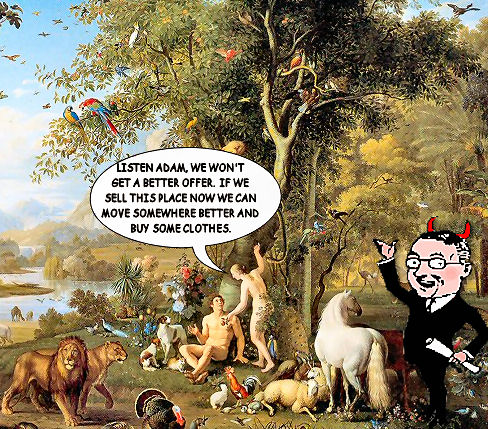
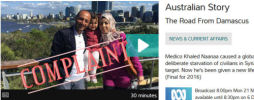 The suffering of the civilians of Madaya is terrible but it is the armed men who have infiltrated their town who bear the first responsibility for their plight. No government in the world could allow a situation to continue in which a terrorist group is holding a civilian population hostage. This is the reality of Madaya. Knowing the essential facts there is surely no Australian watching your ‘Australian Story’ who could regard a group like Ahrar al Sham with anything other than abhorrence yet in your report on Madaya this group is not even mentioned. Neither is there any attempt to question Mr Nanaa about his dealings with this group and possibly his affinity with its ideology. It is certain that he could not have operated in Madaya without its support and without at least appearing to support its aims, The outcome is a report that is superficially heart-warming but is by no means the true story of what lies behind the ‘siege’ of Madaya."
The suffering of the civilians of Madaya is terrible but it is the armed men who have infiltrated their town who bear the first responsibility for their plight. No government in the world could allow a situation to continue in which a terrorist group is holding a civilian population hostage. This is the reality of Madaya. Knowing the essential facts there is surely no Australian watching your ‘Australian Story’ who could regard a group like Ahrar al Sham with anything other than abhorrence yet in your report on Madaya this group is not even mentioned. Neither is there any attempt to question Mr Nanaa about his dealings with this group and possibly his affinity with its ideology. It is certain that he could not have operated in Madaya without its support and without at least appearing to support its aims, The outcome is a report that is superficially heart-warming but is by no means the true story of what lies behind the ‘siege’ of Madaya."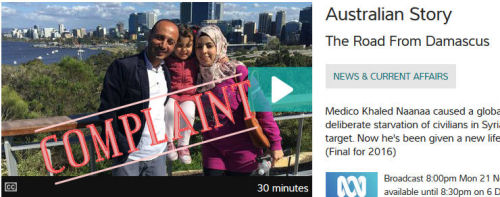
 It is commonly accepted that the dingo arrived in Australia approximately 4,000 years ago, and that the current population of dingoes across Australia grew from just one pregnant female. However, this was just an hypothesis posited by geneticist Dr Alan Wilton (deceased), and was never meant to be taken as fact. In the last paper he wrote before he died, Dr Wilton suggested that dingoes were more likely to have been introduced some 11,000 – 18,000 years ago [1]. In a recent genetics study, Dr Wilton’s partner, Dr Kylie Cairns found that there were most likely two introductions of dingoes to Australia, not just one .[2] One introduction was to the North-west of the country, and the other was to the South-east.
It is commonly accepted that the dingo arrived in Australia approximately 4,000 years ago, and that the current population of dingoes across Australia grew from just one pregnant female. However, this was just an hypothesis posited by geneticist Dr Alan Wilton (deceased), and was never meant to be taken as fact. In the last paper he wrote before he died, Dr Wilton suggested that dingoes were more likely to have been introduced some 11,000 – 18,000 years ago [1]. In a recent genetics study, Dr Wilton’s partner, Dr Kylie Cairns found that there were most likely two introductions of dingoes to Australia, not just one .[2] One introduction was to the North-west of the country, and the other was to the South-east.
 The remarkable photographs of dingos in this document were taken by the author, Jennifer Parkhurst. As well as being a naturalist with years of dingo-dedicated fieldwork behind her, Jennifer Parkhurst is a great photographer. She is the author of two illustrated books about Dingos, Vanishing Icon and the most recent,
The remarkable photographs of dingos in this document were taken by the author, Jennifer Parkhurst. As well as being a naturalist with years of dingo-dedicated fieldwork behind her, Jennifer Parkhurst is a great photographer. She is the author of two illustrated books about Dingos, Vanishing Icon and the most recent, 


 Emails and the web are full of messages from the faux-left about how they underestimated how much of the West's population had sympathy for racist, bigoted, sexist, homophobic and islamophobic ideas espoused by Trump and his ilk. That's what they pretend is behind what is actually the rejection of loss of sovereignty, loss of citizens' rights, through globalism and open borders. Here are two examples, both from organisations influenced by Soros money: The Australian Greens and GetUp. And what is their message? Send us more money! That's really what they are about.
Emails and the web are full of messages from the faux-left about how they underestimated how much of the West's population had sympathy for racist, bigoted, sexist, homophobic and islamophobic ideas espoused by Trump and his ilk. That's what they pretend is behind what is actually the rejection of loss of sovereignty, loss of citizens' rights, through globalism and open borders. Here are two examples, both from organisations influenced by Soros money: The Australian Greens and GetUp. And what is their message? Send us more money! That's really what they are about. 
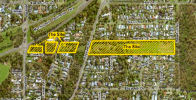 This week Craig Thomson, President of the Australian Wildlife Protection Council, is working on a submission to oppose the rezoning of Melbourne Water land in Rosebud South. Unfortunately he has run into problems getting appropriate ecological information about the site. He wonders if the State Government and Melbourne water have deliberately made the ecological report unavailable. The fauna report relies solely on a habitat assessment and a desktop study for threatened species.
This week Craig Thomson, President of the Australian Wildlife Protection Council, is working on a submission to oppose the rezoning of Melbourne Water land in Rosebud South. Unfortunately he has run into problems getting appropriate ecological information about the site. He wonders if the State Government and Melbourne water have deliberately made the ecological report unavailable. The fauna report relies solely on a habitat assessment and a desktop study for threatened species.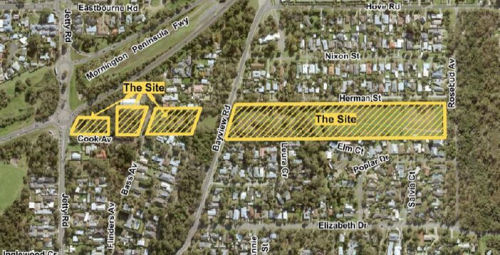
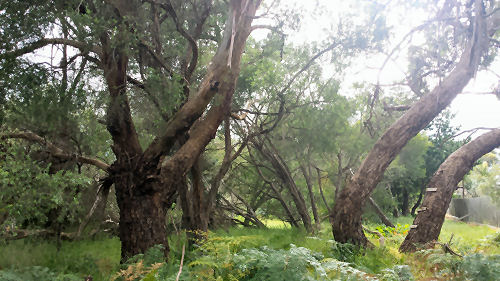
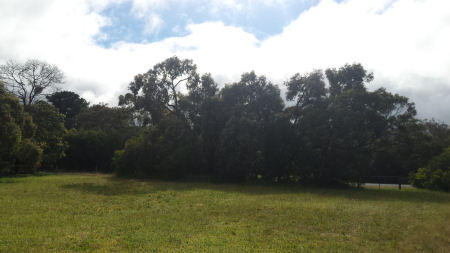


 This document was forwarded to candobetter.net by the National Dingo Preservation and Recovery Program Inc. (A0051763G). On October 17, the Victorian Wilderness Society, in its Wild Chat bulletin wrote: "Hunting Dingoes, Logging Koalas, Pounding Plovers, and Heeding Dr Seuss Bounty brings uncontrolled threat to Victoria’s dingoes." The bulletin concluded, "It now appears the Andrews Government has lost its way, and is taking a regressive step towards failure for both dingo conservation and a balanced resolution of conservation and farming interests." We republish here the contents of that bulletin.
This document was forwarded to candobetter.net by the National Dingo Preservation and Recovery Program Inc. (A0051763G). On October 17, the Victorian Wilderness Society, in its Wild Chat bulletin wrote: "Hunting Dingoes, Logging Koalas, Pounding Plovers, and Heeding Dr Seuss Bounty brings uncontrolled threat to Victoria’s dingoes." The bulletin concluded, "It now appears the Andrews Government has lost its way, and is taking a regressive step towards failure for both dingo conservation and a balanced resolution of conservation and farming interests." We republish here the contents of that bulletin. The DEFCON Warning System is a private organisation that evaluate world events and whether they pose a nuclear threat against America. This threat was reduced to its lowest level of 5 by the election of Donald Trump to the Whitehouse. As others have said, Trump was the 'Peace Candidate'. We republish the DEFCON statement dated the day of Trump's election.
The DEFCON Warning System is a private organisation that evaluate world events and whether they pose a nuclear threat against America. This threat was reduced to its lowest level of 5 by the election of Donald Trump to the Whitehouse. As others have said, Trump was the 'Peace Candidate'. We republish the DEFCON statement dated the day of Trump's election. After fruitless and protracted negotiations between the Human Social Justice Union and Mother Nature, U.N. mediator Hoo R.U. Kiddun has booked off. His decision came after the HSJU reps and Mother Nature failed to hammer out a deal in the latest of enumerable all-night bargaining sessions. “The parties are just too far apart”, Kiddun remarked, “To come to an agreement, there has to be some give and take on both sides, but it seems that for 250 years Union members have been doing all the taking and Management refuses to continue giving.”
After fruitless and protracted negotiations between the Human Social Justice Union and Mother Nature, U.N. mediator Hoo R.U. Kiddun has booked off. His decision came after the HSJU reps and Mother Nature failed to hammer out a deal in the latest of enumerable all-night bargaining sessions. “The parties are just too far apart”, Kiddun remarked, “To come to an agreement, there has to be some give and take on both sides, but it seems that for 250 years Union members have been doing all the taking and Management refuses to continue giving.”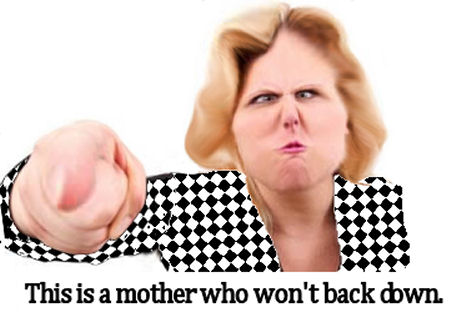

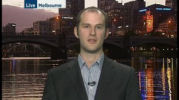

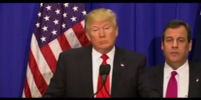 In this video, Trump repeatedly denounces and denies KKK endorsement, as he is asked again and again, day after day, in a demonstration of truly absurd press behaviour. The KKK leader, David Duke, also states here that he never endorsed Trump. Despite the slurs, Donald Trump has denounced KKK hate groups and not said anything racist or bigoted. Yet Whoopi Goldberg, political opponents and main stream media types continue to perpetuate the lie.
In this video, Trump repeatedly denounces and denies KKK endorsement, as he is asked again and again, day after day, in a demonstration of truly absurd press behaviour. The KKK leader, David Duke, also states here that he never endorsed Trump. Despite the slurs, Donald Trump has denounced KKK hate groups and not said anything racist or bigoted. Yet Whoopi Goldberg, political opponents and main stream media types continue to perpetuate the lie.  "Strong population growth is boosting aggregate demand and therefore the growth rate of the economy. But measures of per capita outcomes are more sobering and suggest that not enough emphasis is being placed on them in the policy debate. A brief look at income per capita, dwelling prices to income, infrastructure spend per capita and traffic congestion points to the need for a comprehensive and open discussion around the policy direction Australia is taking. ... The pressures of very high immigration are contributing to social, environmental and economic stress in Australia. There appears to be a tri-party (coalition, Labor and Greens) agreement to keep this off the agenda, despite high levels of public concern."
"Strong population growth is boosting aggregate demand and therefore the growth rate of the economy. But measures of per capita outcomes are more sobering and suggest that not enough emphasis is being placed on them in the policy debate. A brief look at income per capita, dwelling prices to income, infrastructure spend per capita and traffic congestion points to the need for a comprehensive and open discussion around the policy direction Australia is taking. ... The pressures of very high immigration are contributing to social, environmental and economic stress in Australia. There appears to be a tri-party (coalition, Labor and Greens) agreement to keep this off the agenda, despite high levels of public concern." 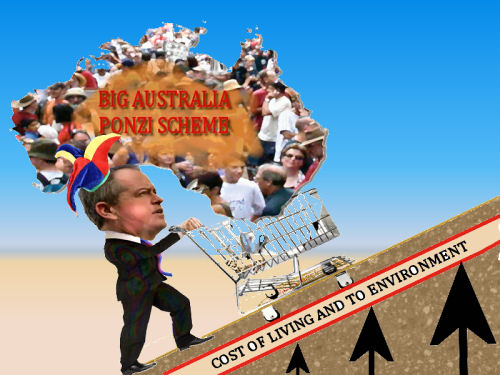
 "Mark, I am fully aware that your job must be challenging and frustrating at times, but ignoring the elephant in the room – the increasingly obvious negative impacts of population growth - is putting EV and all who care for our environment on a never ending hamster wheel of frustration, disappointment, and ultimately hard earned campaign money down the gurgler. Unchecked population growth is having a ratchet effect, steadily increasing the pressure on the environment and reversing previous efforts to protect it. " (Jenny Warfe)
"Mark, I am fully aware that your job must be challenging and frustrating at times, but ignoring the elephant in the room – the increasingly obvious negative impacts of population growth - is putting EV and all who care for our environment on a never ending hamster wheel of frustration, disappointment, and ultimately hard earned campaign money down the gurgler. Unchecked population growth is having a ratchet effect, steadily increasing the pressure on the environment and reversing previous efforts to protect it. " (Jenny Warfe)

 As the title suggests, this article argues, using six examples, that the left treated Hillary Clinton's war plans against Russia as a non-issue. The article begins with six numbered headings and follows with the correspondingly numbered reasons, using arguments from emails, interviews and other documents. The article also discusses the influence of the Trotskyists in riots against Trump.
As the title suggests, this article argues, using six examples, that the left treated Hillary Clinton's war plans against Russia as a non-issue. The article begins with six numbered headings and follows with the correspondingly numbered reasons, using arguments from emails, interviews and other documents. The article also discusses the influence of the Trotskyists in riots against Trump. Francis A. Boyle, Gadaffi's international lawyer and author of
Francis A. Boyle, Gadaffi's international lawyer and author of  Australian Wildlife Protection Council asks Mornington Peninsula Council to investigate potential breaches at 461-469 Waterfall Gully Rd and also to ensure that important remnant vegetation and heritage listed trees are better protected from property development. At the very least Council should ensure planning applications that are granted to remove indigenous vegetation are required to have wildlife spotters on site and flora professionals the opportunity to collect seed and plant material for environmental revegetation projects.
Australian Wildlife Protection Council asks Mornington Peninsula Council to investigate potential breaches at 461-469 Waterfall Gully Rd and also to ensure that important remnant vegetation and heritage listed trees are better protected from property development. At the very least Council should ensure planning applications that are granted to remove indigenous vegetation are required to have wildlife spotters on site and flora professionals the opportunity to collect seed and plant material for environmental revegetation projects. I’m not a vegan or even a vegetarian. I guess you could call me a reasonably discerning but practical omnivore but I’m becoming rather desperate to find something I can eat without feeling guilty about the harm I am doing to someone, something or to the environment.
I’m not a vegan or even a vegetarian. I guess you could call me a reasonably discerning but practical omnivore but I’m becoming rather desperate to find something I can eat without feeling guilty about the harm I am doing to someone, something or to the environment.
 Lest we forget the profiteers whose patriotism and bank balances were always beyond question. At the going down of the sun – we will remember them. [Editor's note: The inclusion of various politicians in the illustrations was an editor idea, not the poet's.]
Lest we forget the profiteers whose patriotism and bank balances were always beyond question. At the going down of the sun – we will remember them. [Editor's note: The inclusion of various politicians in the illustrations was an editor idea, not the poet's.]
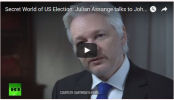
 It is Mrs Hillary Clinton who should be in prison, not Julian Assange. For anyone who is still confused about what on earth Wikileaks has demonstrated about Hilary Clinton, watch this very clear interview by Australia's most famous independent Australian journalist, John Pilger and check the transcript below the video. Assange makes perfectly clear the association between Saudi Arabia and ISIS and Saudi Arabia and the Clinton Foundation. It shows that Hillary Clinton, whilst Secretary of State (!), knew and knows that the Saudi Arabian and Qatar governments were and are funding ISIS. This relationship with terrorism has been going on for years. The Australian Government and opposition must also know this. And, the Australian government, by not getting Assange safely back home is spectacularly failing its obligations to protect its own citizens from persecution. Our government is a cowardly lackey to the United States and the opposition and the Greens are just as bad because they say nothing about this. Our press protects this collusive silence. Assange is without doubt a courageous world figure and an Australian hero, but without Australia's intervention, Assange risks being thrown into a dungeon, like Chelsea Manning - with a mockery trial in the United States, should he step outside the Ecuadorian Embassy. Transcript inside, first published on RT at
It is Mrs Hillary Clinton who should be in prison, not Julian Assange. For anyone who is still confused about what on earth Wikileaks has demonstrated about Hilary Clinton, watch this very clear interview by Australia's most famous independent Australian journalist, John Pilger and check the transcript below the video. Assange makes perfectly clear the association between Saudi Arabia and ISIS and Saudi Arabia and the Clinton Foundation. It shows that Hillary Clinton, whilst Secretary of State (!), knew and knows that the Saudi Arabian and Qatar governments were and are funding ISIS. This relationship with terrorism has been going on for years. The Australian Government and opposition must also know this. And, the Australian government, by not getting Assange safely back home is spectacularly failing its obligations to protect its own citizens from persecution. Our government is a cowardly lackey to the United States and the opposition and the Greens are just as bad because they say nothing about this. Our press protects this collusive silence. Assange is without doubt a courageous world figure and an Australian hero, but without Australia's intervention, Assange risks being thrown into a dungeon, like Chelsea Manning - with a mockery trial in the United States, should he step outside the Ecuadorian Embassy. Transcript inside, first published on RT at  "The door to Australia is closing" says Nick McKim of the Australian Greens. Many people reading this might be alarmed, wondering how their relatives overseas can visit them in future. But no, this heading is misleading. It is only the little door at which asylum seekers arriving by boat appear. The big door to Australia is still wide open for others.
"The door to Australia is closing" says Nick McKim of the Australian Greens. Many people reading this might be alarmed, wondering how their relatives overseas can visit them in future. But no, this heading is misleading. It is only the little door at which asylum seekers arriving by boat appear. The big door to Australia is still wide open for others.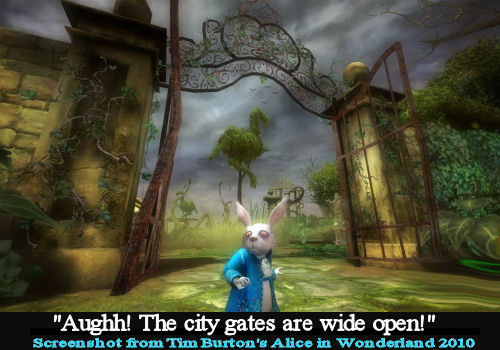
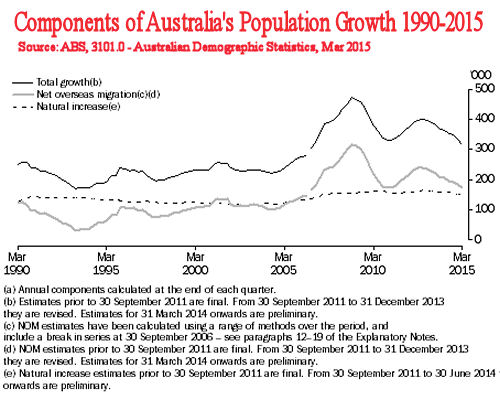
 These problems particularly concern viewing RT New and Press.tv.ir. For several days we have only been able to view those shows that have been republished on you tube. :-[ Our last problems with Telstra seemed to be fixed when we rewired around the 7th of Octobe. But now they are back again. Is anyone else having problems accessing RT or Iranian Press TV? End of article, don't bother to click on link.
These problems particularly concern viewing RT New and Press.tv.ir. For several days we have only been able to view those shows that have been republished on you tube. :-[ Our last problems with Telstra seemed to be fixed when we rewired around the 7th of Octobe. But now they are back again. Is anyone else having problems accessing RT or Iranian Press TV? End of article, don't bother to click on link. Jeff Dorset has begun a campaign addressed to the Prime Minister to reduce Australia`s economic, non refugee immigration intake to economically.environmentally and socially responsible level of 50,000 net pa and significantly reduce 457 Visa and other foreign worker import program. Please consider signing it.
Jeff Dorset has begun a campaign addressed to the Prime Minister to reduce Australia`s economic, non refugee immigration intake to economically.environmentally and socially responsible level of 50,000 net pa and significantly reduce 457 Visa and other foreign worker import program. Please consider signing it.

 "Propaganda is most effective when our consent is engineered by those with a fine education - Oxford, Cambridge, Harvard, Columbia -- and with careers on the BBC, the Guardian, the New York Times, the Washington Post. These organisations are known as the liberal media. They present themselves as enlightened, progressive tribunes of the moral zeitgeist. They are anti-racist, pro-feminist and pro-LGBT. And they love war. While they speak up for feminism, they support rapacious wars that deny the rights of countless women, including the right to life." John Pilger.
"Propaganda is most effective when our consent is engineered by those with a fine education - Oxford, Cambridge, Harvard, Columbia -- and with careers on the BBC, the Guardian, the New York Times, the Washington Post. These organisations are known as the liberal media. They present themselves as enlightened, progressive tribunes of the moral zeitgeist. They are anti-racist, pro-feminist and pro-LGBT. And they love war. While they speak up for feminism, they support rapacious wars that deny the rights of countless women, including the right to life." John Pilger. 
 Artist Mariette Perrinjaquet, in her latest exhibition 3-16th November at Chapel on Station Gallery, Box Hill, Victoria explores the origins and the mystery of life and our place as humans within this. In her statement she acknowledges the unknowable but expresses the certainty that whether life came about by accident or if it has meaning we are nonetheless part of it with each individual having the power to contribute even in the face of enormous ecological challenges.
Artist Mariette Perrinjaquet, in her latest exhibition 3-16th November at Chapel on Station Gallery, Box Hill, Victoria explores the origins and the mystery of life and our place as humans within this. In her statement she acknowledges the unknowable but expresses the certainty that whether life came about by accident or if it has meaning we are nonetheless part of it with each individual having the power to contribute even in the face of enormous ecological challenges.
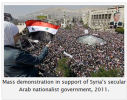 Apparently, the US Left has yet to figure out that Washington doesn’t try to overthrow neoliberals. If Syrian President Bashar al-Assad were a devotee of the Washington Consensus–as Counterpunch’s Eric Draitser seems to believe–the United States government wouldn’t have been calling since 2003 for Assad to step down. Nor would it be overseeing the Islamist guerilla war against his government; it would be protecting him.
Apparently, the US Left has yet to figure out that Washington doesn’t try to overthrow neoliberals. If Syrian President Bashar al-Assad were a devotee of the Washington Consensus–as Counterpunch’s Eric Draitser seems to believe–the United States government wouldn’t have been calling since 2003 for Assad to step down. Nor would it be overseeing the Islamist guerilla war against his government; it would be protecting him.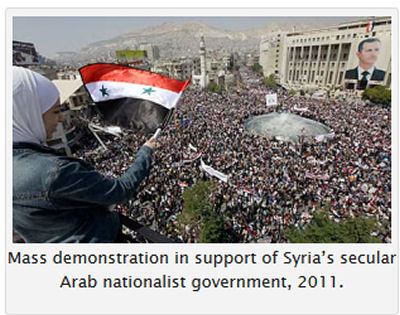
Recent comments